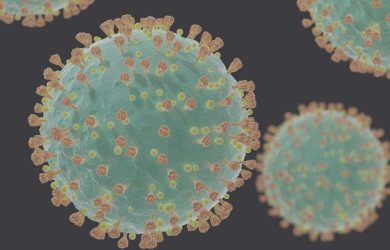Noa Epstein traces her involvement in the Israeli peace movement to an invitation to take part in a summer camp when she was 14. She was part of the Israeli delegation selected by the Ministry of Education to take part in Seeds of Peace, an organisation which aims to build friendships between Israeli and Arab youth.
“It was the first time I had met Palestinian and Arab people,” she says. It was 1997, just before the outbreak of the second Intifada and she and the Arab friends she made at the camp were able to sustain and develop their friendship after the camp. Some of her friends from the West Bank came to visit schools in Israel and gave presentations about their experiences; they held dinners at each other’s homes; the friendships deepened so that when the political situation grew darker they remained intact. “We were motivated by the ideology of friendship,” says Noa.
The friendships were so strong that when she went away to an international school in Norway aged 17, she was determined not to use her absence as an excuse to move on. She has maintained her contacts with Seeds of Peace ever since, facilitating dialogue groups at camp and organising social and fundraising events.
Noa, who grew up in Jerusalem with her brother and sister, says that although she discovered Seeds of Peace independently, her parents, particularly her mother, has a big impact on her interest in peace activism. Both were very open-minded, but her mother was more politically active. “The conflict in the Middle East was always talked about at home. I had exposure to it from a young age,” says Noa.
Her mum, who works with Noa’s dad in their landscape architecture office, was involved in peace demonstrations and public events, especially from 2001 onwards after the second Intifada. She volunteered for organisations which helped Palestinian farmers pick their olive crops after a separation barrier was erected meaning that they could not get access to them.
Noa’s interest in peace building among people from different cultures deepened when she won a scholarship to the United World College international school in Norway after being told about it by a friend. She says there were students from 85 countries there which fostered a deep sense of international awareness, understanding and social leadership. “It’s quite similar to the Gates Cambridge Trust,” she says. “When I read the application criteria for Gates I felt I could really relate to that because of UWC. There is a whole network of international communities like this growing.”
On her return to Israel, she enrolled at the Hebrew University where she sought to keep up her global outlook by studying international relations.
She says she thinks the US should do more to “almost force” Israel to end the occupation of the Palestinian Territories, establish permanent and recognised borders and build peace and economic cooperation, but she does not think that an academic boycott of Israel will do this in the long term, given that many Israeli academics are pushing for precisely these things. “In the long term the carrot rather than the stick must be more effective. Instead of academic boycotts I think it is important to help fund projects that encourage academic and other partnerships between those institutions that are doing positive things,” she says.
On her return to Israel, Noa declared herself a conscientious objector, and by being recognised by the Israeli army as a pacifist, she was exempted from military service. She feels she is contributing to Israel through her work for peace.
At the end of her degree, she started working for Dr Ahmad Tibi, a leading Arab MP. She said the job gave her the opportunity to learn more about the situation of Palestinian citizens of Israel, improve her Arabic and make contacts in areas that interested her. “It is quite unique for a Jewish person in Israel to work for an Arab citizen,” she says. She dealt mainly with constituent issues and says she learnt a lot in the year she was there. She then joined Peace Now, Israel’s biggest peace movement. “I wanted to find out how to affect Israeli public opinion and build a critical mass, but it was really challenging. We wanted to mobilise the mainstream critical silent mass that supports peace,” she says.
She worked at Peace Now for two and a half years before moving to the Peres Center for Peace where she was Director of the Mediterranean department. Her job was to develop grassroots projects that connected organisations and professionals from the region, focusing on culture, business and young politicians. She says it was quite a challenge to get partners funding for the projects, particularly after the economic crisis of 2008.
It was this work, in part, that led her to apply for an MBA at Cambridge, funded by a Gates scholarship. Noa, who is at Darwin College, wants to build up her management skills and understand the language of business better. Her MBA will look at ways of creating a social enterprise model that will not collapse in periods of economic hardship and encouraging cross border partnerships. She plans to return to Israel afterwards and put what she has learnt into action.












